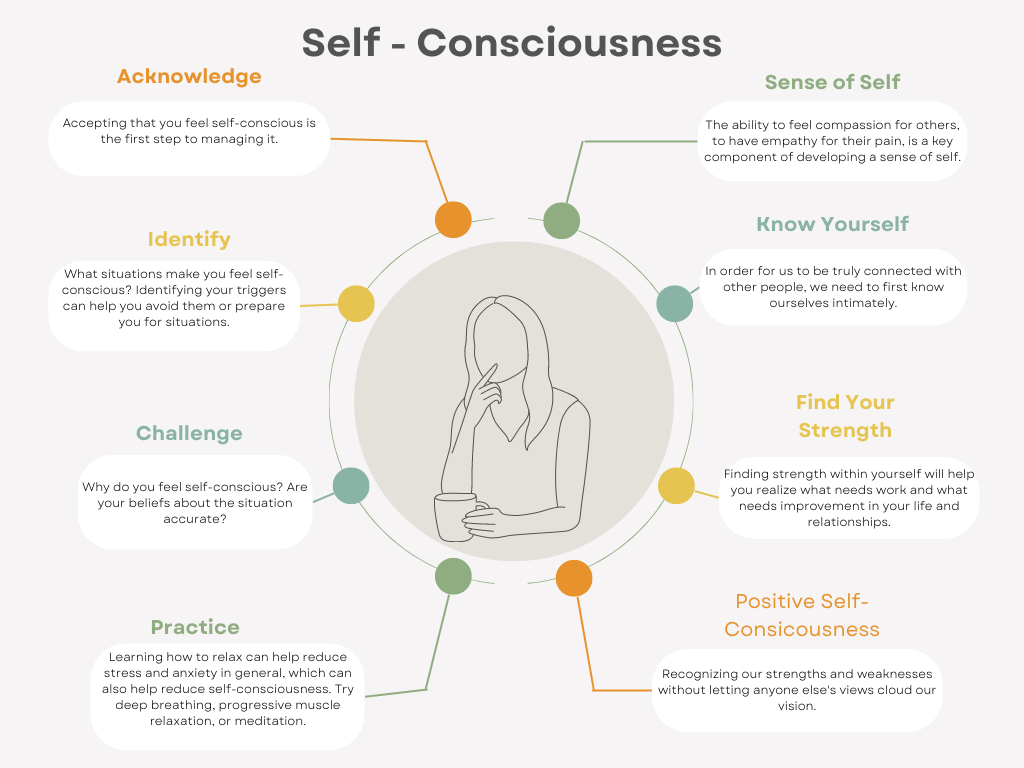
Self-Consciousness
Self-consciousness is a heightened sense of self-awareness.
It is a preoccupation with oneself, as opposed to the philosophical state of self-awareness, which is the awareness that one exists as an individual being.
However, the two terms are commonly used interchangeably or synonymously.
An unpleasant feeling of self-consciousness may occur when one realizes that one is being watched or observed, the feeling that "everyone is looking" at oneself.
Some people are habitually more self-conscious than others.
Unpleasant feelings of self-consciousness are sometimes associated with shyness or paranoia.
Unlike self-awareness, which in a philosophical context is being conscious of oneself as an individual, self-consciousness, being excessively aware of one's appearance or manner, can sometimes be a problem.
Self-consciousness is often associated with shyness and embarrassment, resulting in a lack of pride and low self-esteem.
In a positive context, self-consciousness may affect identity development, for people come the closest to knowing themselves objectively during periods of high self-consciousness.
Self-consciousness affects people in varying degrees, as some people are constantly self-monitoring or self-involved, while others are completely oblivious about themselves.
Private self-consciousness is a tendency to introspect and examine one's inner self and feelings.
Public self-consciousness is an awareness of the self as others view it.
This self-consciousness can result in self-monitoring and social anxiety.
Both private and public self-consciousness are viewed as personality traits that are relatively stable over time, but they are not correlated.
Just because an individual is high on one dimension doesn't mean they are high on the other.
Self-consciousness can strongly influence behavior.
As well as public and private self-consciousness, the Self-Consciousness Scale (SCS-R) measures social anxiety.